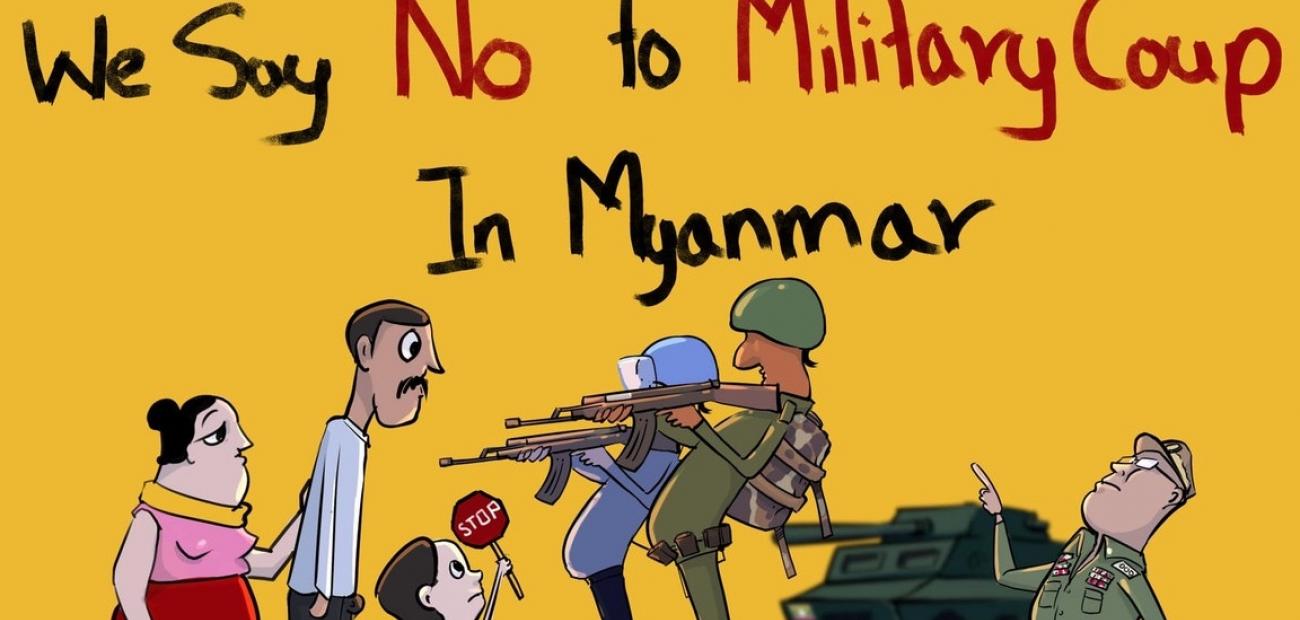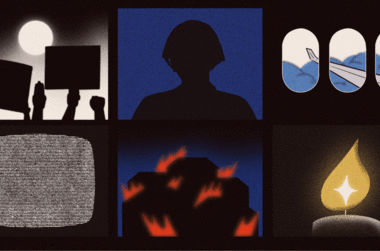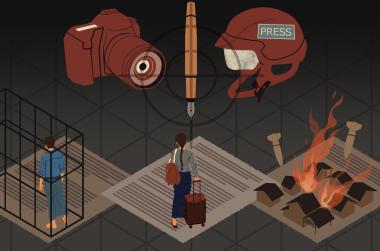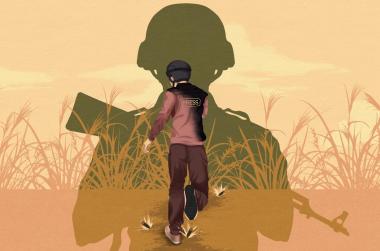Resourcefulness has become a matter of survival for many in Myanmar as their hopes and ambitions crumble in the aftermath of the military takeover. This 30-year-old Kayin woman from the Dawei area of Tanintharyi had been helping to train and educate local women and children until the coup. Now, isolated and afraid, the people of the village have only each other to rely on.
Before the coup, I had so much planned, like educational trips to teach children about the environment. Now we are afraid to travel.
I have a friend on (one of the islands in the Mergui archipelago) who, like me, is interested in teaching children about the environment. She called me and told me not to come because when she and the kids were picking up trash in the village, the army told her not to move around like that because it could be seen as protesting. So no more such activities.
I also had plans with women from different areas, to share knowledge and skills and to visit places still rich with traditional practices.
I want to do my best to serve the women in my community while I’m still young. Mostly, we only see men leading community work so people think women’s place is in the kitchen. Even in national identification cards, women’s jobs are written as dependent. I want to change this perception. I don’t want women to think: “There’s nothing we can do. We just have to stay at home, do household chores and look after the children.” I don’t want them to feel inferior. I want them to feel confident.
I have been working to maintain and revive our traditional knowledge handed down from our ancestors. Such knowledge has almost disappeared from our area. We use the bark of the trees in our local forests as dyes to colour cotton threads and these are used to make Karen traditional dress or bags.
Many people no longer know which tree can be used for which colour and many of the elders who had these skills have passed away. About two years ago I started looking into this and discovered that in Tanintharyi, there are more than 30 types of trees we can use to color the cotton. That’s what I have been able to find out so far.
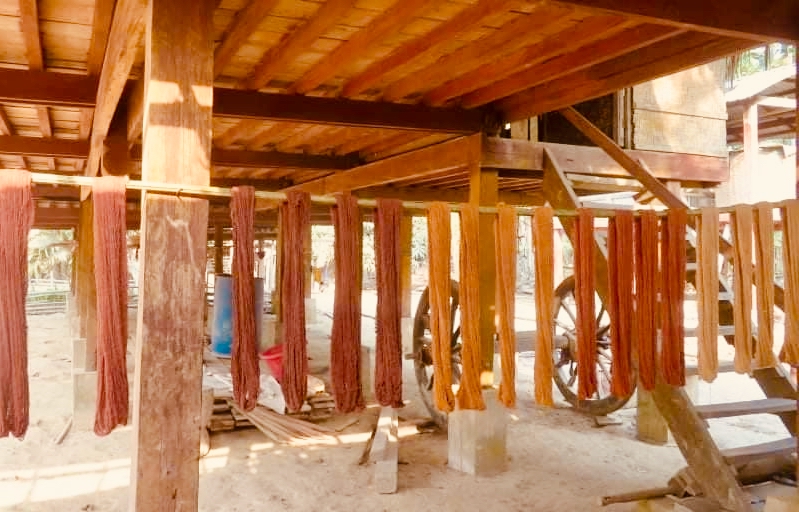
I shared this with young women and it not only provides them with an income, it is also a way for them to take part in forest conservation. So, they are both using and conserving the forest, which provides them with an income.
I also took women who know how to weave to nearby areas to teach others.
But we can’t do these things anymore. My ambitions for those projects have all but disappeared.
One of the main challenges is fear. We are always worrying about when the military will come and shoot at our village. We don’t have internet services so we can only get our news from the radio.
If the military rule continues, my biggest worry is that there will be more fighting, more displacement and destruction. If our homes and villages are destroyed, we will have to start from scratch again - it is not easy to build a village again. I really hope the political situation improves so we can live honestly and peacefully.
We’ve had to flee before. Food, shelter, medicine become difficult, especially for children and elderly people. It is also unsafe for women. As we all know, the soldiers could rape women. My parents and grandparents have suffered the effects of such fighting and we don’t want to go back to that situation.
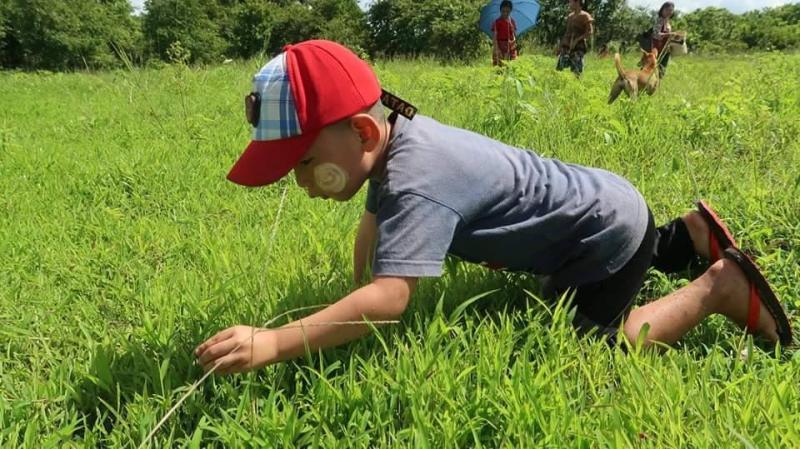
Some people who experienced fighting in the past are ready to leave because they are overcome by fear. Then there are those who no longer want to run because they’ve done it so many times in the past. Even before the coup, the military already stationed troops in the border areas and strategic locations, so if worse comes to worst, we have nowhere to run. They would just block everything.
Since the coup, commodity prices have shot up but compared to people who live in the cities who are very worried about making ends meet, in the villages we don't need to buy vegetables and we can forage in the forest. It was the same when COVID-19 hit. Those in cities were too scared to go out but we were able to continue farming and horticulture.
Currently, I am making natural shampoo. This is what we’ve been using for generations, since our grandparents' time. We can produce this in our area but youths today no longer use it and instead rely on shampoos that have a lot of foam. So I’ve been working on ways to get the natural, traditional shampoo to lather and then sharing that with other women in the village. (Editor: she is referring to the Tayaw-Kimmun which is derived from a small shrub. See more here and here)
I’m also teaching them how to make jams using local fruit, without using any chemicals. This way, you don’t have to pay a lot of money to buy healthy local foods. It is also another way for them to earn money.
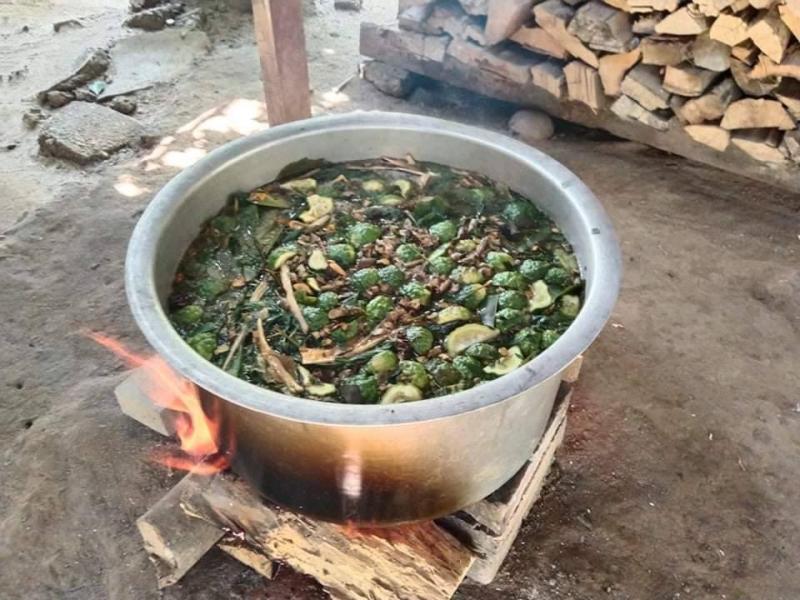
There is no school for the children anymore. So people in the community with knowledge of things like first aid, politics, natural resource management, English, and even playing the guitar and violin, have started teaching voluntarily to ensure the children’s education is not completely disrupted.
There have been COVID-19 outbreaks in the area so our villages are now in lockdown. We decided within the community to do this ourselves to keep each other safe even though nobody has died here so far.
We’ve formed different groups to take on different tasks, like security, preparing food and governance. It’s crucial that we have a good and strong governance system because at this point in time, we no longer have a government. If something happens, there’s no government we can turn to.
Interviewed conducted by Esther Wah who works with ethnic communities across Myanmar on their right to protect the land and forests.
Art courtesy of Raise Three Fingers for Democracy https://www.threefingers.org/

